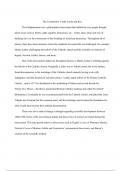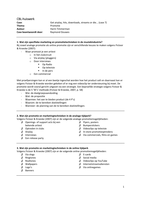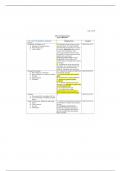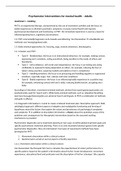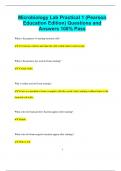The Enlightenment was a philosophical movement that shifted the way people thought
about issues such as liberty, right, equality, democracy, etc…Today, those ideas and way of
thinking serve as the cornerstone of the founding of American democracy. Throughout all of
history, there have been instances where the standards of normal life are challenged, for example:
Martin Luther challenging the beliefs of the Catholic church and the scientific revolutions of
Kepler, Newton, Galilei, Bacon, and more.
One of the most radical upheavals throughout history is Martin Luther’s rebelling against
the beliefs of the Catholic church. Originally, Luther was a Catholic monk, but in his studies,
found discrepancies in the teachings of the Catholic church (namely having to do with
indulgences and the doctrine of salvation alone). “Luther urged reform of the Roman Catholic
Church…and in 1517 he distributed to the archbishop of Mainz and several friends his
Ninety-five Theses…the theses questioned Roman Catholic teaching and called for reform”
(Britannica). Eventually he was excommunicated from the Catholic church, translated the Latin
Vulgate into German (for the common man), and his teachings soon became the foundation for
what would later become the Lutheran denomination.
There was also a radical change in thought regarding scientific development between
1600-1700. Some of the most famous minds and discoveries of science are found during this
time period. This time period ushers in discoveries such as Kepler’s Laws of Planetary Motion,
Newton’s Laws of Motion, Galilei and Copernicus’ astronomical discoveries, and Bacon’s
creation of the scientific method.
, “The Scientific Revolution was characterized by an emphasis on abstract
reasoning, quantitative thought, an understanding of how nature works, the view of
nature as a machine, and the development of an experimental scientific method”
(Britannica).
All of this new thought essentially took God out of the equation; it brought in a focus on
rationale and celebrated reason. This made way for Enlightenment thinkers to take the stage.
One of the most prominent, guiding figures of the Enlightenment was the philosopher
John Locke, whose philosophies were evidently guided by his own personal religious
convictions. In his political thought, he opposed the common theory of the divine right of kings
(that is, that they can play God), and believed that all people have rights to life and to liberty,and
rulers who attempt to deny or oppose those rights should be removed from power (Britannica).
“We hold these truths to be self-evident, that all men are created equal, that they
are endowed by their Creator with certain unalienable Rights, that among these are Life,
Liberty and the pursuit of Happiness. That to secure these rights, Governments are
instituted among Men, deriving their just powers from the consent of the
governed,—That whenever any Form of Government becomes destructive of these ends,
it is the Right of the People to alter or to abolish it, and to institute new Government,
laying its foundation on such principles and organizing its powers in such form, as to
them shall seem most likely to effect their Safety and Happiness” (Declaration of
Independence).
Locke’s philosophy is practically seen word for word in one of the first documents
America produced. The founding fathers, like Washington, Jefferson, and Madison, would have

